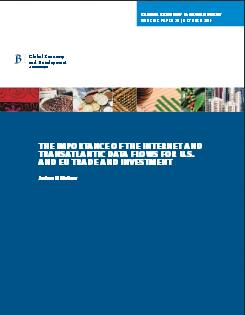Bill Gates (2014) “Why Inequality Matters“, LinkedIn Influencers, 15 Οκτωβρίου. A 700-page treatise on economics translated from French is not exactly a light summer read—even for someone with an admittedly high geek quotient. But this past July, I felt compelled to read Thomas Piketty’s Capital in the Twenty-First Century after reading several reviews and hearing about it from friends. I’m glad I did. I encourage you to read it …Read More
‘Mensch tracht, und Gott lacht’ – what’s the best guidance on monetary policy?
Miles, D. (2014) “‘Mensch tracht, und Gott lacht’ – what’s the best guidance on monetary policy?“, VoxEU Organisation, 22 Οκτωβρίου. Many central banks embrace forward guidance by announcing expected interest rate paths. But how likely it is that actual rates will be close to expected ones? This column argues that quantifying such uncertainty poses great difficulties. Precise probability statements in a world of uncertainty (not just risk) can be …Read More
Why the German economy is in a rut
The Economist Explains: “Why the German economy is in a rut“, The Economist, 21 Οκτωβρίου 2014. In the second quarter of this year the German economy shrank by 0.2%. Economists expect it to contract again in the third quarter, meaning that the economy will technically be in recession. Some believe that the economy will not grow until the middle of next year. This performance has taken some people by …Read More
Europe’s Original Sin and the Dangers of Doing Good
CFI (2014) “Europe’s Original Sin and the Dangers of Doing Good“, Capital Finance International (cfi.co), 02 Οκτωβρίου. Carlos Rangel, the Venezuelan diplomat and essayist, once pointedly remarked that western nations often send their failed politicians – the dreamers, utopians, and other ineffectual romantics – to far-off places where they can do no harm other than to their host countries. Mr Rangel (1929-1988) deplored the lack of pragmatism and structure …Read More
The Importance of the Internet and Transatlantic Data Flows for US and EU Trade and Investment
Meltzer, P. J. (2014) “The Importance of the Internet and Transatlantic Data Flows for US and EU Trade and Investment“, Global Economy & Development – Brookings Institute, Working Paper 79, Οκτώβριος 2014. The most globally significant bilateral trade and investment relationship is between the US and the EU An increasing amount of this economic relationship is underpinned by cross-border flows of data. Cross-border data flows between the US and …Read More
Does The Secular Stagnation Theory Have Any Sort of Validity?
Hugh, E. (2014) “Does The Secular Stagnation Theory Have Any Sort of Validity?“, A Fistful of Euros: European Opinion Blog, 20 Οκτωβρίου. In a number of blog-posts (Paul Krugman’s Bicycling Problem, On Bubble Business Bound, The Expectations Fairy) I have examined some of the implications of the theory of secular stagnation. But I haven’t up to now argued why I think the hypothesis that Japan and some parts of …Read More
A New Euro Crisis?
Dixon, H. (2014) “A New Euro Crisis?“, Reuters Breaking Views, 20 Οκτωβρίου. The markets are right to worry about the euro zone, the epicentre of last week’s fright. Its three big economies -Germany, France and Italy- are, in their own ways, stuck. There is, in theory, a grand bargain that might shift the malaise. This would involve deep structural reform by Berlin as well as Paris and Rome; quantitative …Read More
Two years after Mario Draghi’s ‘whatever it takes’ moment, the Eurozone is once again staring into the abyss
Hancké, B. (2014) “Two years after Mario Draghi’s ‘whatever it takes’ moment, the Eurozone is once again staring into the abyss“, LSE EUROPP, 21 Οκτωβρίου. Growth in the Eurozone has declined significantly over recent months, raising fears that Europe could be heading toward another economic crisis. Bob Hancké writes on what it would take to generate growth in Eurozone states. He argues that the best – and possibly only …Read More
Sovereign-debt relief and its aftermath: The 1930s, the 1990s, the future?
Reinhart, M. C., Trebesch, C. (2014) “Sovereign-debt relief and its aftermath: The 1930s, the 1990s, the future?“, VoxEU Organisation, 21 Οκτωβρίου. To work towards resolving Europe’s ongoing debt crisis this column looks to the past. From the recent emerging market debt crisis (1980s-2000s) and the interwar episode of the 1920s-1930s we learn that debt write-downs and defaults are able to be postponed but not prevented. Punishment for default is …Read More
Why Should Europe (or Anyone Else) Fear Deflation?
Dolan, E. (2014) “Why Should Europe (or Anyone Else) Fear Deflation?“, Economonitor Blog, 20 Οκτωβρίου. Europe is fearful as it teeters on the brink of deflation. As the chart shows, September consumer prices in the eurozone were just 0.3 percent higher than in the same month a year earlier. That is far below the 2 percent inflation target set by the European Central Bank (ECB). Five countries were already …Read More






